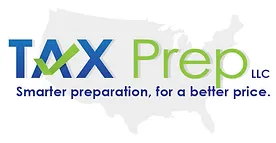Florida, with its pristine beaches and vibrant attractions, is a haven for vacationers. If you’re lucky enough to own a vacation home in the Sunshine State, you might be considering renting it out to offset costs or generate additional income. While the prospect of becoming a temporary landlord is exciting, it’s essential to understand the tax implications that come with renting out your slice of paradise. In this guide, we’ll explore the ins and outs of the tax landscape for vacation home rentals in Florida.
- Rental Income:
The first thing to consider is the rental income you’ll earn from your vacation home. Whether you’re renting it out for a few weeks a year or for an extended period, the income generated is generally taxable. This includes not only the traditional rent but also any extra fees, such as cleaning or service charges.
- Tax Deductions for Vacation Home Expenses:
The good news is that many of the expenses associated with owning and renting out a vacation home can be deducted from your taxable income. This may include mortgage interest, property taxes, utilities, maintenance costs, and even management fees. Keep detailed records of all expenses related to the property to maximize your deductions.
- Personal Use vs. Rental Use:
If you also use your vacation home for personal getaways, the IRS has specific rules regarding the allocation of expenses. The number of days you personally use the property versus the days it’s rented out can affect the tax treatment. Understanding the rules and keeping accurate records of your property’s usage is crucial for tax planning.
- Depreciation Benefits:
One of the significant tax advantages of renting out a vacation home is the ability to depreciate the property’s value over time. This can result in substantial tax savings, allowing you to offset rental income and reduce your overall tax liability. However, it’s essential to navigate these rules carefully and consider consulting with a tax professional to ensure compliance.
- Short-Term vs. Long-Term Rentals:
The duration of your rental agreements can impact your tax situation. Short-term rentals (typically less than 15 days) may offer more flexibility as the income may be tax-free. However, if you’re renting your vacation home for an extended period, you’ll need to adhere to specific reporting requirements and consider the implications on your tax liability.
- State and Local Taxes:
Florida is known for its lack of state income tax, which is undoubtedly a perk for vacation home owners. However, there may be local taxes or fees applicable to short-term rentals, so it’s crucial to research and understand any regional regulations that may affect your tax obligations.
Conclusion:
Renting out your vacation home in Florida can be a rewarding venture both financially and personally. However, navigating the tax implications requires careful planning and consideration of various factors. By staying informed, keeping meticulous records, and seeking professional advice when needed, you can maximize your tax benefits and enjoy the best of both worlds—sunshine and savings—in the Sunshine State.

